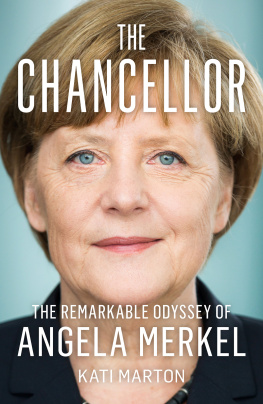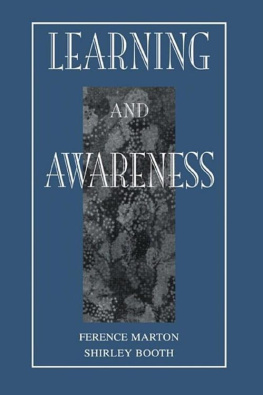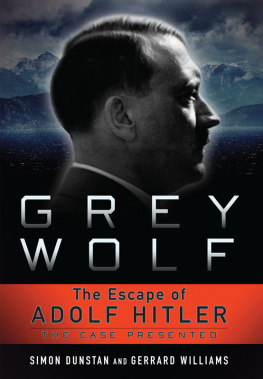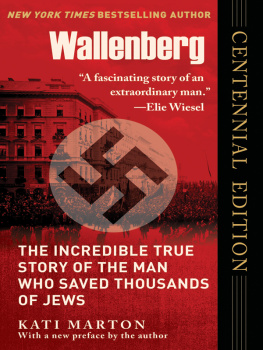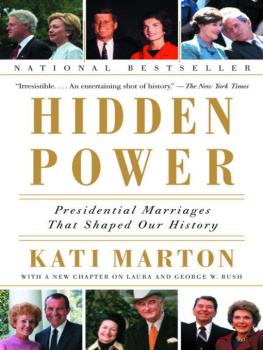Kati Marton [Marton - The Great Escape: Nine Jews Who Fled Hitler and Changed the World
Here you can read online Kati Marton [Marton - The Great Escape: Nine Jews Who Fled Hitler and Changed the World full text of the book (entire story) in english for free. Download pdf and epub, get meaning, cover and reviews about this ebook. year: 2006, publisher: Simon & Schuster, genre: Non-fiction. Description of the work, (preface) as well as reviews are available. Best literature library LitArk.com created for fans of good reading and offers a wide selection of genres:
Romance novel
Science fiction
Adventure
Detective
Science
History
Home and family
Prose
Art
Politics
Computer
Non-fiction
Religion
Business
Children
Humor
Choose a favorite category and find really read worthwhile books. Enjoy immersion in the world of imagination, feel the emotions of the characters or learn something new for yourself, make an fascinating discovery.
- Book:The Great Escape: Nine Jews Who Fled Hitler and Changed the World
- Author:
- Publisher:Simon & Schuster
- Genre:
- Year:2006
- Rating:4 / 5
- Favourites:Add to favourites
- Your mark:
- 80
- 1
- 2
- 3
- 4
- 5
The Great Escape: Nine Jews Who Fled Hitler and Changed the World: summary, description and annotation
We offer to read an annotation, description, summary or preface (depends on what the author of the book "The Great Escape: Nine Jews Who Fled Hitler and Changed the World" wrote himself). If you haven't found the necessary information about the book — write in the comments, we will try to find it.
Kati Marton [Marton: author's other books
Who wrote The Great Escape: Nine Jews Who Fled Hitler and Changed the World? Find out the surname, the name of the author of the book and a list of all author's works by series.
The Great Escape: Nine Jews Who Fled Hitler and Changed the World — read online for free the complete book (whole text) full work
Below is the text of the book, divided by pages. System saving the place of the last page read, allows you to conveniently read the book "The Great Escape: Nine Jews Who Fled Hitler and Changed the World" online for free, without having to search again every time where you left off. Put a bookmark, and you can go to the page where you finished reading at any time.
Font size:
Interval:
Bookmark:

Hidden Power
A Death in Jerusalem
The Polk Conspiracy
An American Woman
Wallenberg


SIMON & SCHUSTER
Rockefeller Center
1230 Avenue of the Americas
New York, NY 10020
Copyright 2006 by Kati Marton
All rights reserved,
including the right of reproduction
in whole or in part in any form.
Map by Paul Pugliese
SIMON & SCHUSTER and colophon are registered trademarks of Simon & Schuster, Inc.
Library of Congress Cataloging-in-Publication Data
Marton, Kati.
The great escape: nine Jews who fled Hitler and changed the world / Kati Marton.
p. cm.
Includes bibliographical references and index.
1. JewsHungaryBudapestBiography. 2. Jews, HungarianUnited StatesBiography. 3. ExilesHungaryBudapestBiography. 4. ExilesHungaryBudapestHistory20th century. I. Title.
DS135.H93A153 2006
940.53'180922dc22 [B] 2006049162
ISBN-10: 1-4165-4245-0
ISBN-13: 978-1-4165-4245-2
Photo credits will be found on back matter
Visit us on the World Wide Web:
http://www.SimonandSchuster.com
To my parents, Ilona Marton (19122004)
and Endre Marton (19102005)

Hungarians are the only people in Europe without racial or linguistic relatives in Europe, therefore they are the loneliest on this continent. Thisperhaps explains the peculiar intensity of their existence. Hopeless solitude feeds their creativity, their desire for achieving. To be Hungarian is a collective neurosis.
A RTHUR K OESTLER

O n a muggy day in July of 1939, two young physicists got into a blue Dodge coup, crossed the Triborough Bridge, and drove past the futuristic Worlds Fair pavilion, passing fruit stands, vineyards, and modest farmhouses along Route 25, much of which was still unpaved, looking for the worlds most famous scientist, Albert Einstein, who was spending the summer on Long Island. Their trip, and a second shortly thereafter, would have historic consequences.
Inside the car, which was his, Eugene Wigner, wispy-voiced and as unprepossessing as a small-town pharmacist, listened patiently to the intense, curly-haired Leo Szilard. Wigner always let his friend, whom he called The General, think he was in charge, but Wigners piercing eyes, hidden behind steel-rimmed glasses, missed nothing. As they drove, they argued in their native tongue, Hungarian, about what they would say to the great man.
Deep in a typically heated conversation, the two Hungarians got lost. For two hours they drove around the South Shore; Einsteins retreat, however, was in Peconic, on the North. Finally, they found Peconic, but the roads and gray shingle houses all looked identical to the pudgy Szilard, sweaty in his gray wool suit. Agitated, he began to think that fate might be against their bold step. The cooler Wigner calmed him down. Lets just ask somebody where Einstein lives, he suggested. Everybody knows who Einstein is. Finally, a boy of about seven pointed his fishing rod toward a one-story house with a screened front porch.
The sixty-year-old Einstein welcomed his visitors, old friends from Berlin days, wearing a white undershirt and rolled-up trousers. He had spent the morning sailing. Szilard and Wigner now switched to German and went straight to the point; they were in no mood for small talk. Einstein was aware of recent experiments in Germany suggesting that if neutrons bombarded uranium a nuclear chain reaction could be created. But the second part of the Hungarians message was news to Einstein: that a nuclear chain reaction could lead to incredibly powerful bombsatomic bombs! Shaking his famous white mane, Einstein said, Daran habe ich gar nicht gedachtI had not thought of that at all. But Einsteins former colleagues at the Kaiser Wilhelm Institute for Physics in Berlin, Szilard warned, appeared to be closing in on the discovery. Until that moment, Einstein, the man whose theories had launched the revolution in physics, had not believed that atomic energy would be liberated in my lifetime. Now he saw how his famous equation of 1905, E=mc2, might apply to the explosive release of energy from mass, using uranium bombs.
Though a pacifist, Einstein well understood the Nazi threat; like Szilard and Wigner, he had left Germany because of Adolf Hitler. So the father of relativity signed a letter, prepared primarily by Szilard, to the Belgian ambassador in Washington, warning the Belgian government that bombs of unimaginable power could be made out of uranium, whose primary source was the Belgian Congo. Then Einstein returned to his dinghy, and the two Hungarians drove back to the city.
Szilard worried that this would not be enough: should they not also alert President Franklin Delano Roosevelt? We did not know our way around in America, Szilard later recalled. But he knew an investment banker named Alexander Sachs, a friend of the president who did know Washington. After Szilard talked to Sachs, the banker concurred: the president must be told.
So two weeks later, on Sunday, July 30, Szilard returned to Einsteins cottage. Wigner was in California, so Szilardwho did not know how to driveturned to another Hungarian, who owned a 1935 Plymouth: a young physics professor at Columbia University named Edward Teller. (Teller would later joke that he entered history as Leo Szilards chauffeur.) Together Szilard and his bushy-browed driver extracted a second letter from Einstein. It was probably the most important letter of the twentieth century.
I believe, the greatest scientist of the century wrote to the most important political leader of the age, it is my duty to bring to your attentionthat it may become possible to set up a nuclear chain reaction in a large mass of uranium, by which vast amounts of power and large quantities of new radium-like elements would be generated. Now it appears almost certain that this could be achieved in the immediate future. This new phenomenon would also lead to the construction of bombs, and it is conceivablethough much less certainthat extremely powerful bombs of a new type may thus be constructed. A single bomb of this type, carried by boat and exploded in a port, might very well destroy the whole port together with some of the surrounding territory.
The United States has only very poor ores of uranium in moderate quantities. There is some good ore in Canada and the former Czechoslovakia, while the most important source of uranium is Belgian Congo.
In view of this situation you may think it desirable to have some permanent contact maintained between the Administration and the group of physicists working on chain reactions in America. (Emphasis added.)
Szilard believed that such a letter, signed by none other than Albert Einstein, would get immediate attention. But it did not. On September 1, 1939, when Hitler attacked Poland, Einsteins letter lay unread somewhere in FDRs in-box.
Einsteins letter was finally brought directly to FDRs attention by Sachs on October 11, and began the process that would lead to the creation of the Manhattan Projectthe top secret government effort to build the atom bomb. But Roosevelt had no idea that the letter was the work of three Hungarian refugees who were not yet American citizens.
Font size:
Interval:
Bookmark:
Similar books «The Great Escape: Nine Jews Who Fled Hitler and Changed the World»
Look at similar books to The Great Escape: Nine Jews Who Fled Hitler and Changed the World. We have selected literature similar in name and meaning in the hope of providing readers with more options to find new, interesting, not yet read works.
Discussion, reviews of the book The Great Escape: Nine Jews Who Fled Hitler and Changed the World and just readers' own opinions. Leave your comments, write what you think about the work, its meaning or the main characters. Specify what exactly you liked and what you didn't like, and why you think so.



